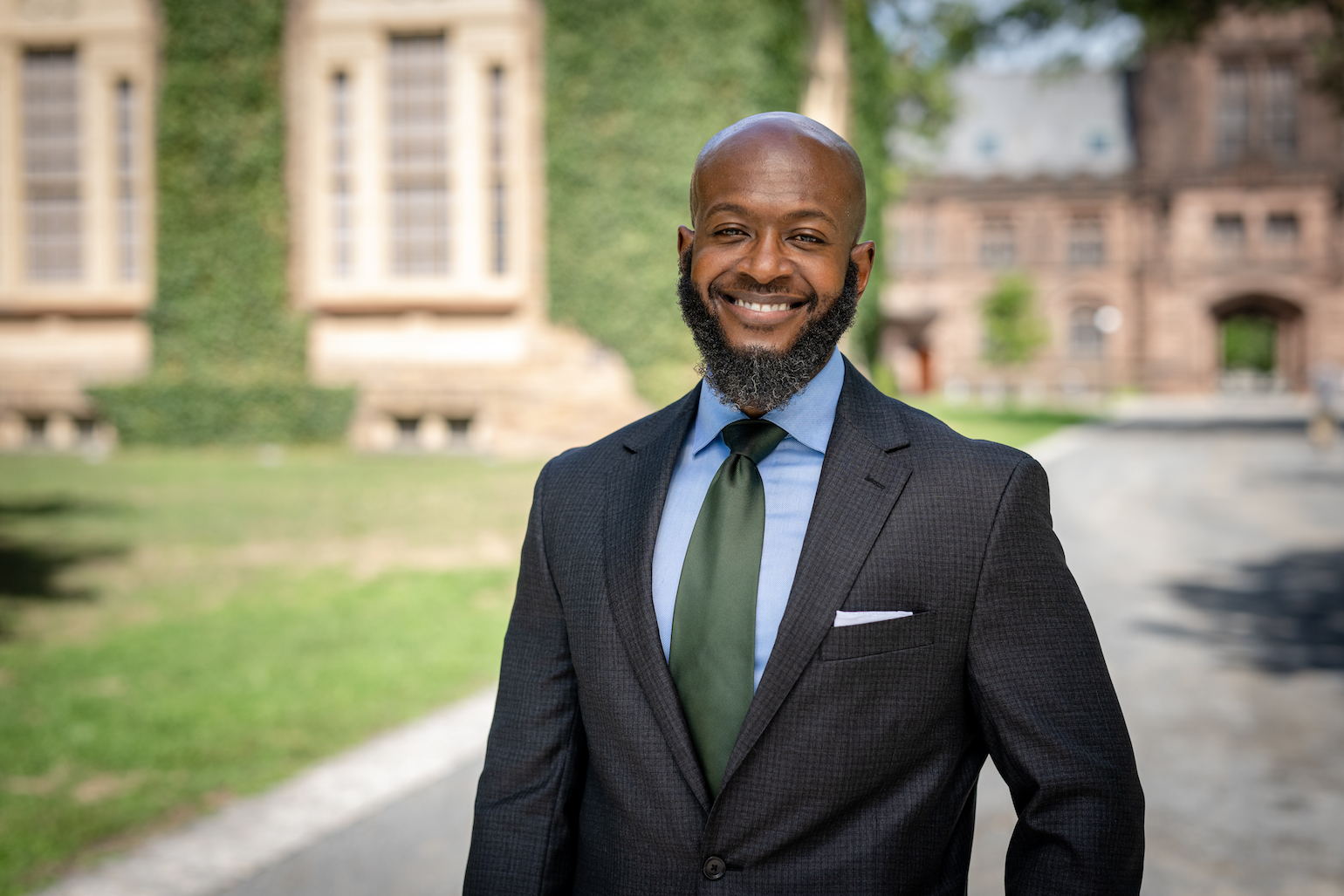Wayne State English alumnus, Joseph L. Lewis, applies DEI research at Princeton as new assistant dean

Named assistant dean for access, diversity and inclusion at the Princeton Graduate School in September 2022, Joseph L. Lewis, Ph.D. ‘20, has more than a decade of experience working on collegiate initiatives that promote diversity, equity and inclusion. He has held positions as teaching assistant professor in the Department of English and Comparative Literature at the University of North Carolina at Chapel Hill, Consortium for Faculty Diversity Fellow in English and Black Studies at Denison University, and associate professor of English at Delta College, a premier community college in University Center, Michigan, where he achieved tenure.
Lewis holds a Ph.D. in English from Wayne State University, where he was a King-Chavez-Parks Future Faculty Fellow. He also holds an M.A. in Africana Studies and Literature from New York University’s Gallatin School of Individualized Study. He earned a B.A. in English Arts from Hampton University, where he was an inaugural fellow in the William Harvey Leadership Institute. He received a specialized certificate from Cornell University’s School of Criticism and Theory.
A study in a critical theory of Blackness
Joseph L. Lewis’ research focuses on critical theories of Blackness in the context of gothic horror narratives and activist movements. His dissertation titled: “Blackness and the Rhetoric of Racism in University of Cape Town’s #RhodesMustFall movement & University of Missouri’s Concerned Student 1950 movement” compares two student activist movements that occurred in 2015 at two universities on opposite sides of the world.
“Post the Occupy Wall Street movement, it was fascinating to see this sort of resurgence of student activism around taking down statues, replacing university administration, students wanting to say something about or having a voice in the decisions around curriculum,” Lewis said. “It was the final piece to these larger questions that I was having about discourse and rhetorical theory and race and reconciliation.
“I found that there were a lot of intersections between how students were theorizing ideas of Blackness to get things done. The Concerned Student 1950 occupied university spaces and talked about Black pain to galvanize people around their cause, whereas the University of Cape Town used these ideas of Black pain to make curricular changes.”
Cultivating a sense of belonging comes into play in Lewis’ day to day as an academic whose job, in part, revolves around encouraging students that Princeton is possible.
“One of the things that I am continuing to develop from my dissertation research is how we think about the different actors within the university space: administration, faculty, students, and staff. How do we take a more holistic approach to diversity issues and Title XI cases so that students don’t feel as if the institution is favoring administration or administration doesn’t feel as if faculty don’t understand the challenges that administration encounters to make sure things at the university get done,” Lewis said. “I think there’s a way that we can start thinking about building opportunities for us to continue that dialogue between those actors within the university space to create more flexible, more progressive, more cutting-edge policy around diversity inclusion and access.”
An interdisciplinary approach to higher education
One step in the right direction is the implementation of more interdisciplinary spaces for students, Lewis said, an idea for which he largely credits his time in the KCP program at WSU.
A commuter student living in Saginaw, Michigan at the time of pursuing his Ph.D., Lewis taught at Delta College during the day then drove to WSU in time for evening classes. He said the one thing he found himself initially lacking was community. KCP changed that.
A cohort of scholars across disciplines meant exposure to students from all different backgrounds with different research interests and questions.
Lewis recalls he and the other scholars had to present their research numerous times to their peers.
“I was able to refine not only how I communicate my scholarly contributions but think about how my research impacts society globally. How does the work that I do in the humanities impact the larger world? KCP was one of those academic inclusive spaces of belonging that allowed for that sort of work to take place.”
It’s a model he hopes to replicate for his students at Princeton, but he won’t stop with maintaining more inclusive spaces on campus.
“I want to create opportunities for students to do work on an international level. I want students to ask their same research questions that they’re probing in their graduate programs in another country because only then can you realize a deeper understanding of what that research looks like globally.”
About the King-Chavez-Parks Future Faculty Fellowship program
The KCP-FFF Program provides State of Michigan funding to Michigan's 15 public universities to increase the pool of academically- or economically-disadvantaged candidates pursuing faculty teaching careers in postsecondary education. Learn more on the WSU Graduate School website.